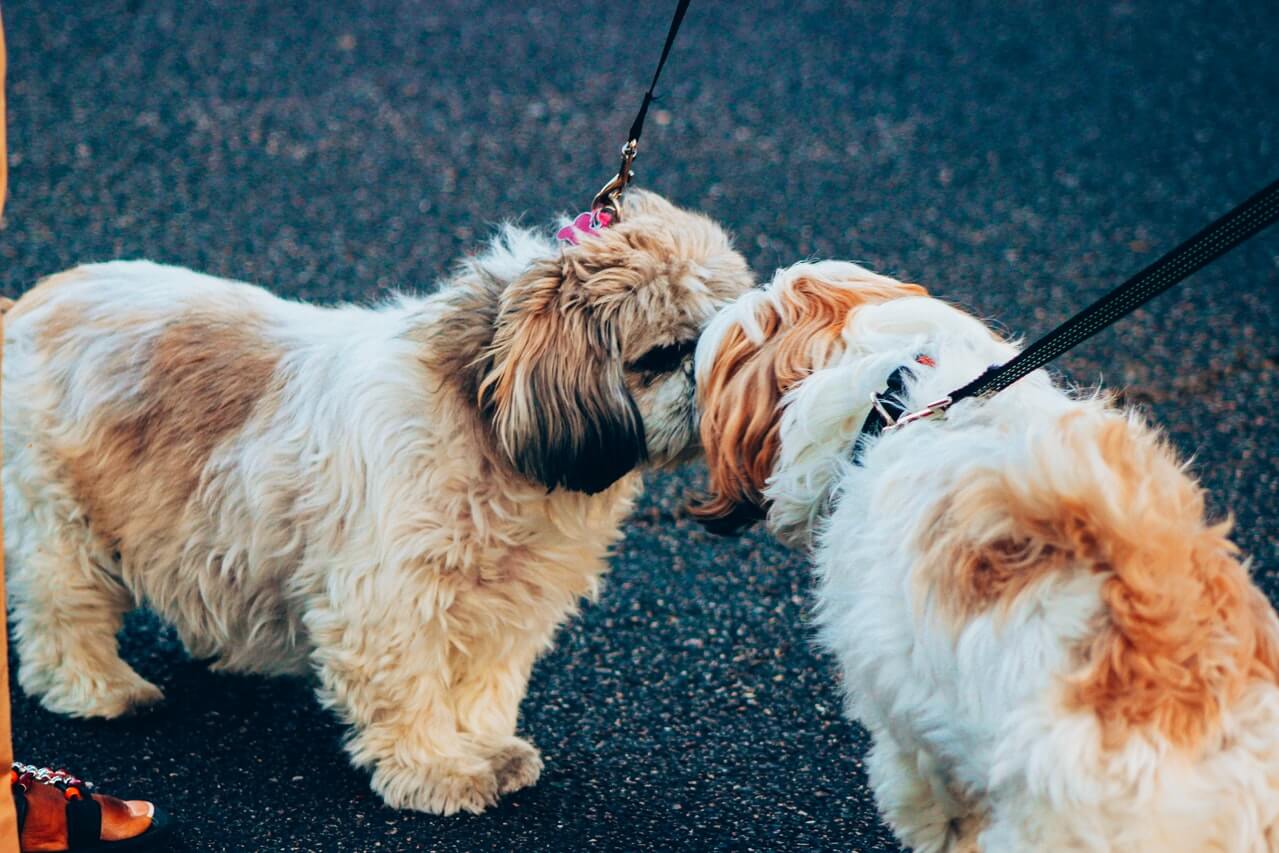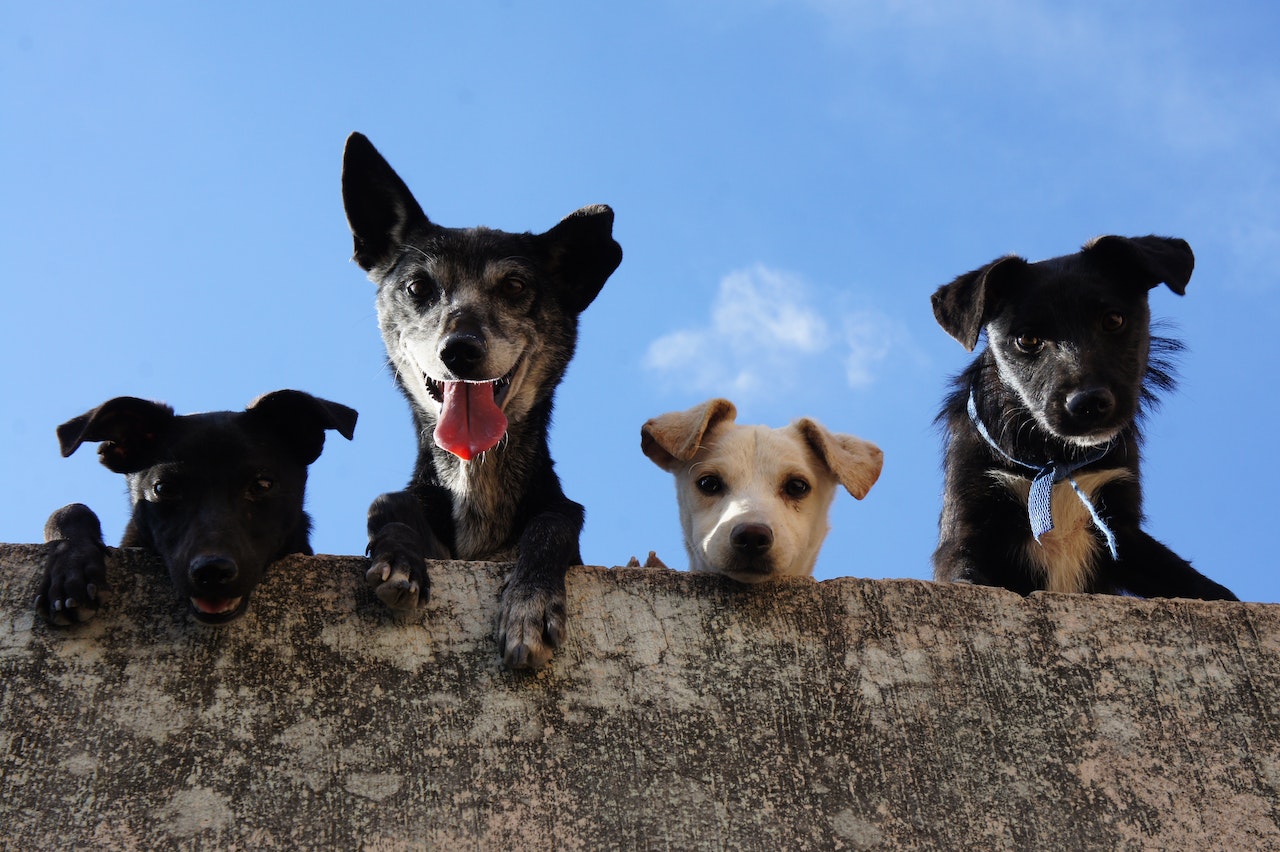

Socializing Your Puppy: Why, When, and How
It’s time to revive your pup’s boring and repetitive days with some wild adventures and a little dog-on-dog interaction. If you want your pup to mingle the right way, here are some crucial key points when introducing them to other hounds.

Writer Animalia Team
7 min read

Nothing is more fun than introducing your puppy to the world. Puppy socialization focuses on that sliver of time to shape puppies toward becoming confident, well-mannered and cooperative adult dogs. Here’s how to do it right.
What is puppy socialization?
Socialization helps an unruly, young puppy grow into a confident and well-behaved adult dog. A socialized puppy is comfortable in new environments and confident in its interactions with both strangers and new playmates. According to research by behaviourists John Paul Scott and John Fuller, a dog’s behavioural makeup is 35% genetic and 65% due to socialization, nutrition, health care, training, and management. In other words, socialization cannot change temperament. However, it certainly plays a role in behavior modification. During the first few months of a puppy’s life their natural energy and enthusiasm will make them eager to socialize. As such, the process works best when it starts early.
Why socialize your puppy?
An alarming statistic from the American Veterinary Society of Animal Behavior (AVSAB) shows that the primary reason owners relinquish dogs and young puppies to shelters is behavioral issues. These issues cause more deaths in dogs under three years of age than even infectious diseases. Experts including those at AVSAB advise dog owners to socialize their dogs as soon as it’s safe to reduce the risk of behavioral issues later in life.

At what age should puppy socialisation start?
The socialization process begins the moment a puppy is born. A responsible breeder or owner will gently handle litters from birth while later encouraging positive interactions with as many people as possible, both children and adults. Puppies will have been allowed to explore their environment in safety, will have had exciting chews and toys to play with, and may even have been introduced to crates and cars. Puppies are best equipped to handle new experiences between the ages of three and 12 weeks. Before three months, even the tiniest experience affects a puppy’s later behavior.
Socializing at home: getting it right
The best place to begin the socialization process is at home. The idea at this stage is that everything and anybody the puppy encounters in its world should make it feel confident and safe. Plan short play sessions into every day’s schedule while being aware of your puppy’s limitations – at first, it will probably sleep for up to 20 hours a day! Give plenty of treats and verbal praise every time your puppy does something positive while ignoring behavior you don’t want to encourage. During these early days and weeks of socialization take every opportunity you can to introduce your puppy to new sounds, sights, smells, textures, and people. These could include mirrors, balloons, TVs, water (sprinklers), balls, household appliances, storms, sirens, people of all ages (wearing different outfits including glasses and hats), and textures such as carpets, sand, and grass. Here are a few more tips for successful socializing at home.
- Create a puppy zone: Create a puppy zone with a crate, food bowl, water bowl, bed, blanket, and toys. Let your new puppy explore this area as soon as they arrive. When they are confident here, introduce them to other rooms in your home.
- Get them used to being touched: Don’t over-excite a new puppy with lots of stroking or by picking them up. Let them come to you. Puppies are naturally inquisitive so this shouldn’t take long. When they do, pat or stroke them gently so that they get used to your touch and reward them for this interaction with treats and praise.
- Take things slowly: Everything your puppy encounters should have a positive association, helping them to learn and adapt without fear. Don’t overwhelm them, however, by introducing too many new sensations at once, and watch out for signs of stress such as pacing, whining, yawning, or excessive licking. If they do become anxious, remove them from the situation and try again another day. If your puppy continually shows fear, talk to your vet as there may be an underlying problem.
Socializing outside the home
One of the best ways to socialize your puppy outside the home is by taking them to classes where they can interact with other dogs under professional supervision. During training classes, they’ll not only get to meet other dogs, but also learn basic obedience and socialization skills. You’ll both have the chance to make plenty of new friends!
In addition to classes, try taking your puppy on short shopping trips or walks in the park. Stop and chat with other dog owners as you meet them along the way. If you embark on a city outing, make sure to cross roads, try out automatic, and experience other urban sights. Beaches and forests can open up whole new worlds of experience.
Can puppies be socialized before they are vaccinated?
As a responsible owner, you should ensure your puppy is vaccinated as soon as possible, completing the full course of vaccinations around 14 to 16 weeks of age. Until fully vaccinated, puppies face an increased risk of catching an infectious disease such as canine parvovirus. Unfortunately, this period of high risk overlaps with the best time for socializing your puppy. There are, however, ways you can encourage socialization before your puppy is fully vaccinated. In fact, the American Veterinary Society of Animal Behavior (AVSAB) recommends commencing socialization before the vaccination program is complete. Classes can start after one set of vaccinations and the first deworming session, around 7 to 8 weeks of age.
Safe ways to socialize a partially vaccinated puppy
So how can you safely socialize a pup before he is fully vaccinated? Here are some things you can do:
1. You can throw a “puppy party”- Invite other dogs of a similar age and vaccination level to play and socialize. You might consider inviting friends from puppy classes.
2. You could also visit the homes of friends and family and safely, slowly introduce them to new people, pets, and sensations.
3. Long rides in the car can expose dogs to new places without presenting infection risks.
4. Take your pup on a walk in a stroller, wagon, or sling. Just don’t allow him to walk in places where there might be other animals’ urine or feces.
5. Take a large blanket and an exercise pen to the park. Let your pup watch the world go by on the safety of the blanket.
Tips for socializing older dogs
While early socialization is best, plenty of pet owners adopt adult dogs from shelters. These dogs may have missed out on their socialization period or experienced traumatic events. The socialization period for these dogs should look much the same as for puppies. Owners should slowly and steadily introduce new sensations and experiences, while keeping an eye out for signs of stress. With plenty of love and care, dogs of any age can learn to interact with others and become a happy, sociable companion.





We offer the most
comprehensive coverage
out there
car with a spare tire for life’s bumps.
Having Animalia is like a pimped-out
Rolls Royce with a swimming pool
in the trunk.



Get your pet insurance quote
Pet type
- Dog
- Cat
What is your pet's name?
Zip code





